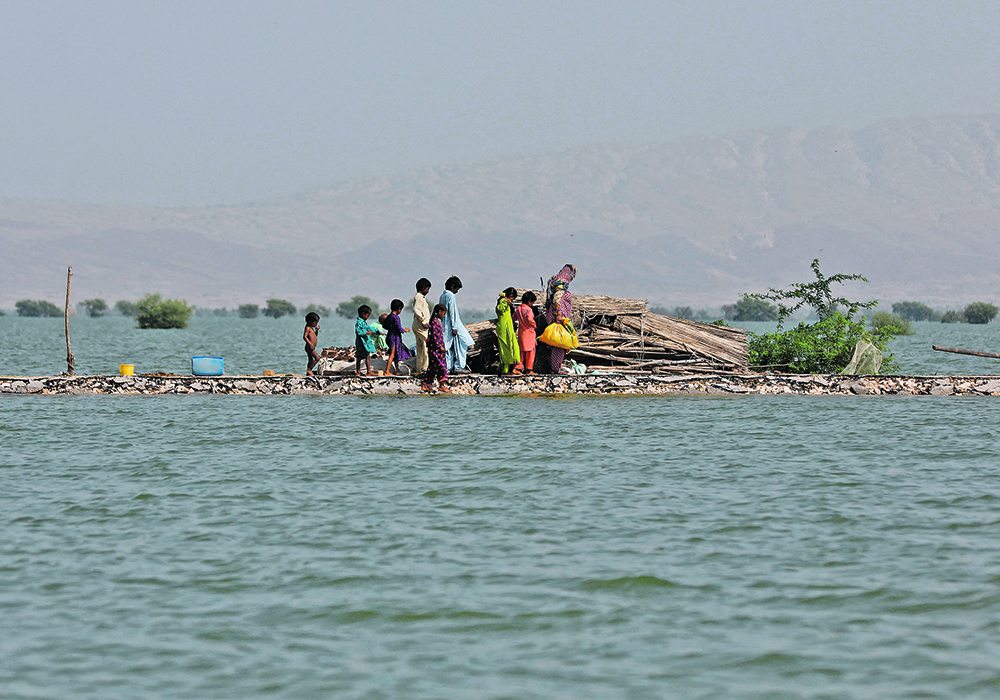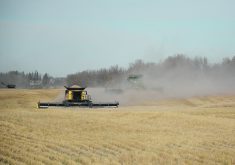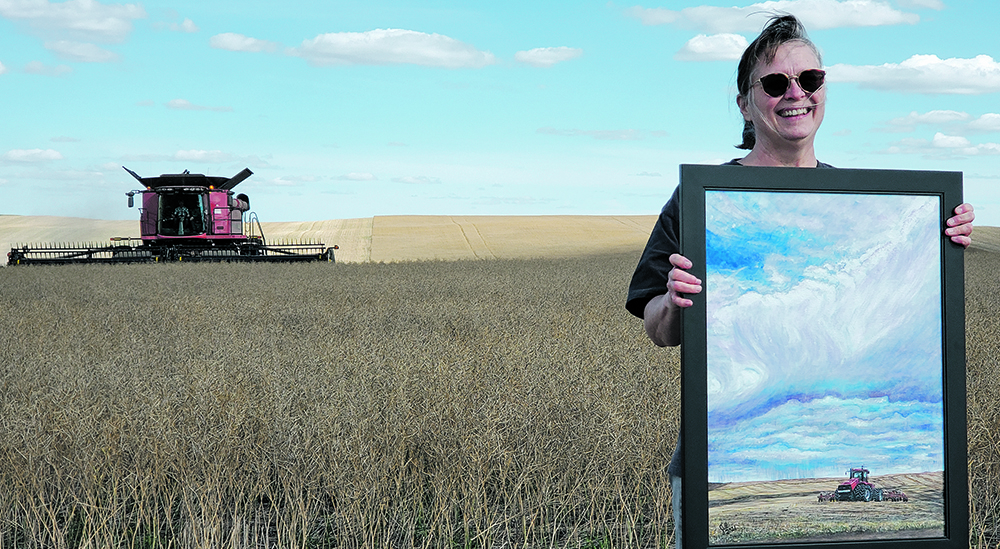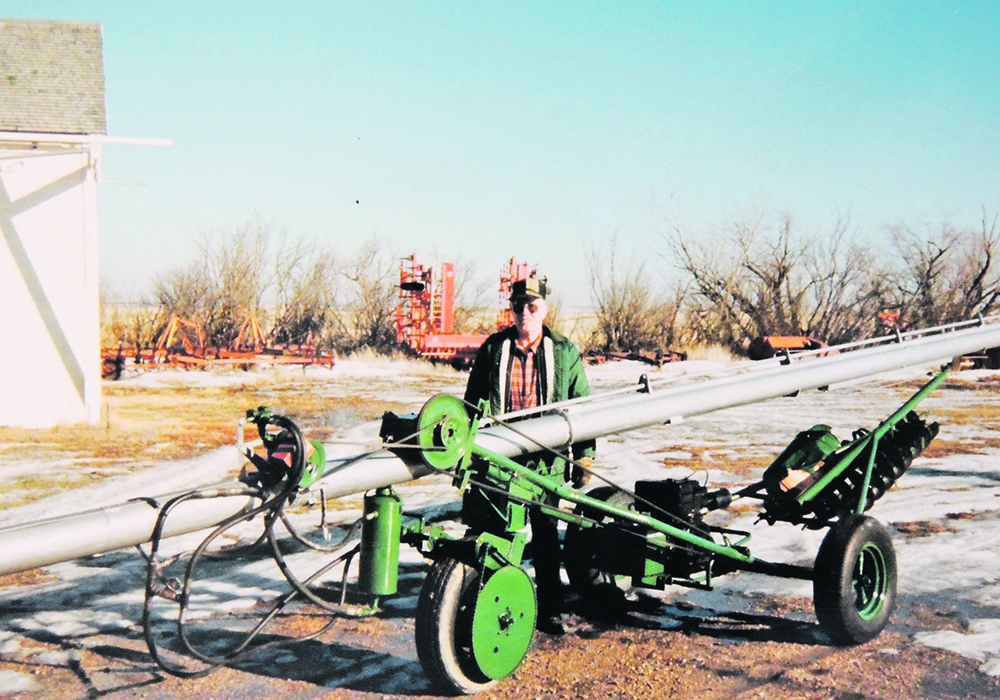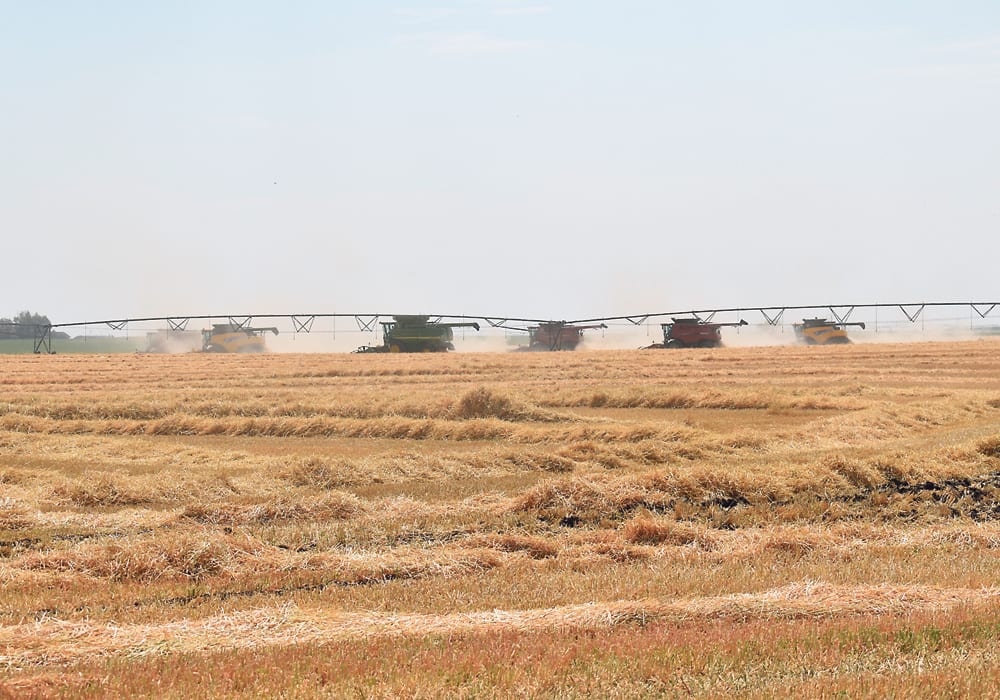The Canadian Foodgrains Bank hopes people living on the Canadian Prairies will understand the impact and sympathize with the losses caused by flooding in Pakistan.
“People, particularly here in the Prairies, know the impact of flooding on your livelihood and your farm. Crops in Pakistan have been failing after a good year and now they’re all washed away with the flood. It’s a very difficult situation for those who are impacted, which is a huge number of people,” said foodgrains bank manager of humanitarian and nexus programs Stefan Epp-Koop.
Read Also

Vintage power on display at Saskatchewan tractor pull
At the Ag in Motion farm show held earlier this year near Langham, Sask., a vintage tractor pull event drew pretty significant crowds of show goers, who were mostly farmers.
The foodgrains bank, a group of 15 Canadian churches and agencies, is collecting food, clean water and financial resources for those who affected by the recent torrential downpour in Pakistan.
“More than 33 million people have been impacted by the flooding,” said Epp-Koop. “This has impacted people’s livelihoods significantly and agricultural land is underwater. Livestock has been washed away, so people’s businesses have been washed away too.”
He said the CFB is working with partners to provide emergency assistance and with its own agency, the Humanitarian Coalition, to improve access to clean water, shelter, and health care.
The federal government has offered to match all donations made between Aug. 1 and Sept. 28. Epp-Koop also emphasized the importance of still making donations after September.
“If people know the impact is going to continue for a while after this flood, with the given level of destruction being experienced there, they can continue to give.”
The CFB pointed to news estimates that more than 1,400 people have died because of the flash floods — a number that is expected to rise.
“People are essentially being left to live on top of roadways, which are the only areas that are higher than the flood waters in many regions,” said Epp-Koop.
Those living in the highly affected areas of Pakistan are known to already be in a steady state of undernourishment, making the loss of crop and livestock, and the need for emergency resources, even more urgent.
The CFB said it is working with Community World Service Asia Pakistan and Presbyterian World Service and Development to provide emergency food assistance to the worst-affected areas of Sindh province, such as in and around the centres of Umerkot and Mirpur Khas.



